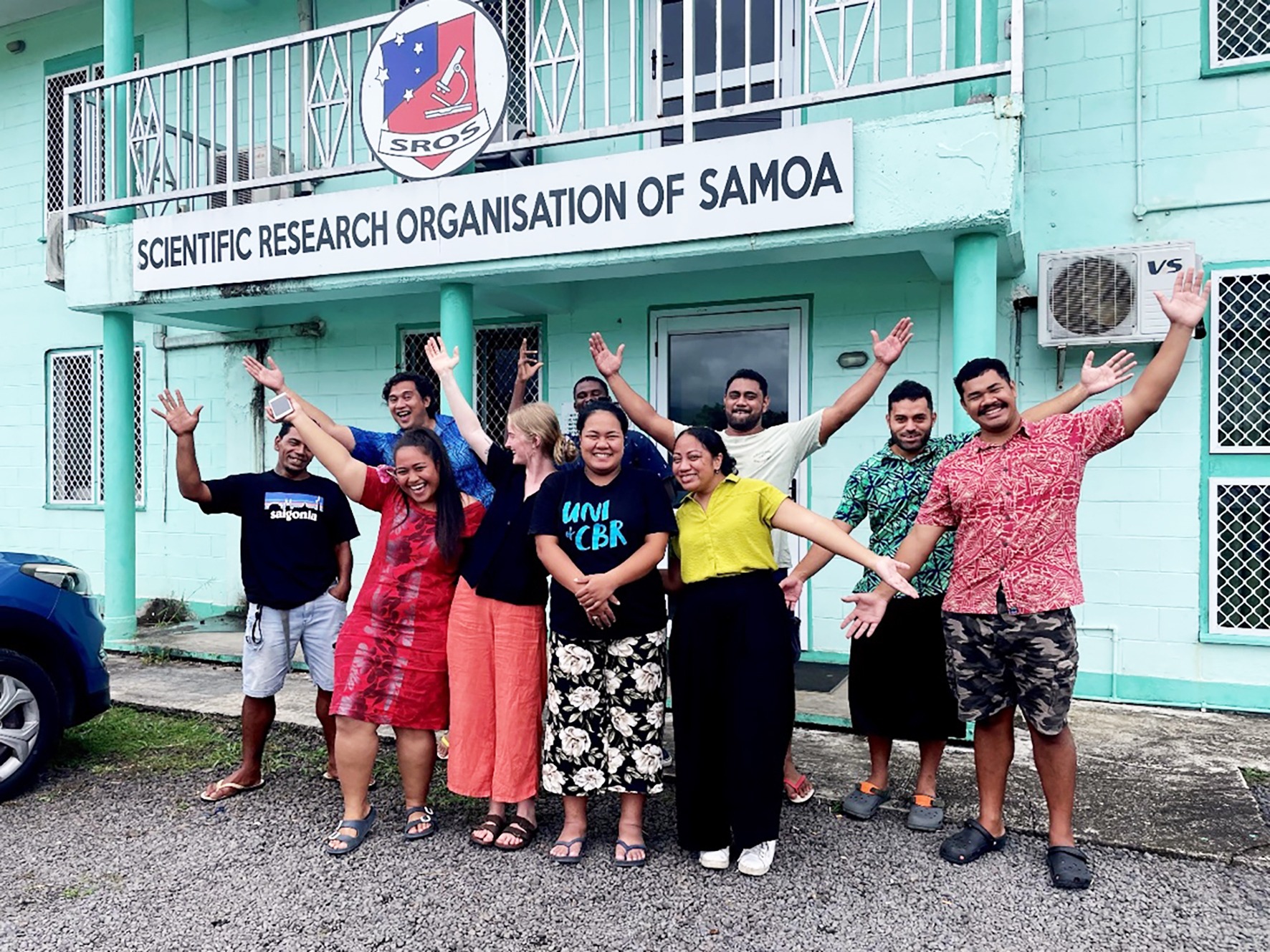

Profound impact of on-the-ground experience in Samoa
February 15, 2024
The Crawford Fund’s highly sought after Student Awards are one way we support and encourage the next generation of Australians into study, careers and volunteering in international agricultural research.
The awards are funded by our State and Territory Committees and made possible by organisations including ACIAR, international centres, Australian and overseas universities and NGOs who host our awardees. Applications for the 2024 Student Awards are currently open!
In 2023, we announced 17 tertiary students had won awards to gain international agricultural research experience and expertise. Many of these NextGen Student Awardees have travelled overseas to undertake their projects, with quite a few involved in our Instagram campaign, reporting when they are on the ground.
We would like to share the experience of Ella Lockley from the University of Tasmania, who reports on the profound impact of her award to travel to Samoa in late 2023 to undertake work as part of the ACIAR project Enhanced fruit systems for Tonga and Samoa (Phase 2): Community based citrus production.

Samoa faces significant health challenges due to high rates of obesity and Type 2 diabetes, stemming from issues in horticultural productivity, crop diversity, and post-harvest losses. The ACIAR Project, in collaboration with the Post-Harvest Division at the Scientific Research Organisation of Samoa (SROS), aims to address these issues by introducing grafted citrus cultivars, investigating postharvest methods, and promoting value-added citrus products through women’s groups explained Ella.
“Supported by the Crawford Fund Award, my three-week engagement in Samoa involved surveys and farm visits, providing valuable insights into international agricultural research, and fostering connections with local stakeholders and community members,” said Ella.

“Thanks to the Crawford Fund Award, I have solidified my passion for pursuing international agriculture as a future career path. I did not anticipate the profound impact witnessing firsthand how these projects affect the livelihoods of communities would have on me,” she said.
“The experience highlighted the importance of community-rooted farming in Samoa, revealed quality challenges in citrus production, and emphasised the essential role of resources and education for sustainable and profitable agricultural practices,” she said.
“I was also able to oversee work in other SROS departments such as the development of new value-added products in the Food Research Division, or how the testing of agricultural plant and water samples are facilitated in the Microbiology Laboratory. And I participated in concurrent projects within the Post Harvest Division, involving activities such as taking and re-planting cuttings of sweet potato varieties being tested for commercial production feasibility, and conducting surveys with stallholders,” said Ella.
For most of her time in Samoa, Ella collaborated with Tara Johnstone and members of the SROS team on the ACIAR Citrus Project.
“For me, direct interactions with stallholders offered a glimpse into the Samoan food market, providing a basic understanding to build upon throughout my stay. This included the diversity of produce grown in Samoa, and the flaws that underpin post-harvest management and crop quality,” she said.
Ella also cared for the imported Australian citrus varieties which are scheduled to be distributed to citrus farmers in the first half of 2024. Care included pruning, regular watering, and monitoring for pest and disease presence. Alongside Tara she demonstrated correct pruning techniques on established trees to farmers/workers, ensuring they were equipped with the correct knowledge to care for the imported varieties.
“When combining everything I learned in Samoa, it is apparent that access to resources, such as education and tools, is a crucial component to implementing progressive, sustainable, and financially rewarding farming in Samoa. The collaboration of organisations, such as SROS and ACIAR, can deliver these resources through projects helping challenge larger issues such as the high prevalence of obesity in Samoa. This involves farmer workshops, which were being organised during my stay for early 2024, as well as introducing farmers to quality, imported farming tools,” said Ella.




 0
0